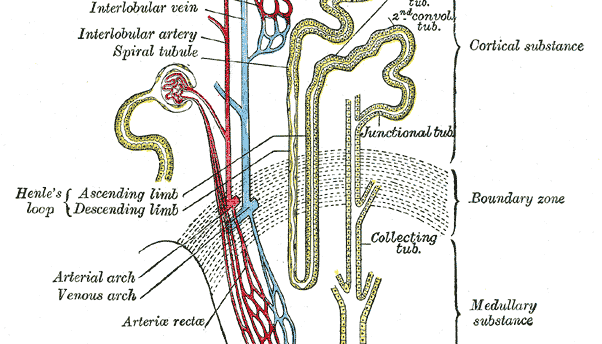Bartter Syndrome: Causes, Symptoms, Diagnosis, and Treatment
A rare inherited disorder affecting kidney function. Named after Dr. Frederic Bartter, who first described it, this condition disrupts the body's ability to balance potassium, sodium, and chloride levels, leading to serious complications. Let’s dive deep into the causes, symptoms, diagnosis, and treatment of Bartter syndrome.
NEPHROLOGYENDOCRINE
Rishwin A R
2/3/20252 min read


Causes of Bartter Syndrome
Bartter syndrome is primarily a genetic disorder caused by mutations in genes responsible for kidney function. It affects the renal tubules, impairing the body's ability to reabsorb essential electrolytes. The main causes include:
Genetic mutations: Inherited in an autosomal recessive pattern, meaning both parents must pass on a faulty gene.
Defective ion transporters: Mutations in genes such as SLC12A1, KCNJ1, CLCNKB, and BSND affect sodium, potassium, and chloride transport in the kidneys.
Prenatal factors: In severe cases, symptoms may appear before birth, leading to polyhydramnios (excess amniotic fluid).
Symptoms of Bartter Syndrome
The symptoms of Bartter syndrome vary depending on the severity and type of the condition. Common symptoms include:
In Infants and Children:
Failure to thrive – Poor growth and development.
Dehydration – Frequent episodes of excessive thirst and urination.
Muscle weakness and cramps – Due to electrolyte imbalances.
Vomiting and constipation – Related to low potassium levels.
Developmental delays – In some cases, cognitive and motor delays occur.
In Adults:
Hypokalemia (low potassium levels) – Leading to fatigue and muscle spasms.
Hypotension (low blood pressure) – Due to sodium loss.
Metabolic alkalosis – A disturbance in blood pH balance.
Nephrocalcinosis – Calcium deposits in the kidneys, potentially causing kidney damage.
Diagnosis of Bartter Syndrome
Diagnosing Bartter syndrome requires a combination of clinical evaluation and laboratory tests:
Blood tests: Show low potassium, high renin, and aldosterone levels.
Urine analysis: Indicates excessive loss of sodium, potassium, and chloride.
Genetic testing: Confirms mutations in Bartter-associated genes.
Prenatal ultrasound: In severe cases, polyhydramnios may be an early indicator.
Treatment of Bartter Syndrome
There is no cure for Bartter syndrome, but treatment focuses on managing symptoms and preventing complications. Key treatment options include:
Medications:
Potassium and magnesium supplements – To correct electrolyte imbalances.
NSAIDs (e.g., indomethacin) – Reduce kidney-related fluid loss.
Spironolactone or amiloride – Help retain potassium and sodium.
Dietary Adjustments:
High-sodium diet – Helps maintain electrolyte balance.
Potassium-rich foods – Bananas, oranges, and leafy greens can help stabilize potassium levels.
Adequate hydration – Prevents dehydration and kidney stress.
Monitoring and Support:
Regular blood tests – To track electrolyte levels.
Growth monitoring in children – Ensures proper development.
Genetic counseling – Useful for families with a history of the disorder.
FAQs
1. Is Bartter syndrome life-threatening?
In severe cases, especially in infants, it can be life-threatening if untreated. However, with proper management, most individuals lead stable lives.
2. Can Bartter syndrome be cured?
There is no cure, but symptoms can be managed with medications, diet, and regular medical monitoring.
3. How is Bartter syndrome different from Gitelman syndrome?
Both affect kidney electrolyte transport, but Bartter syndrome tends to present earlier in life and is usually more severe than Gitelman syndrome.
4. Can adults develop Bartter syndrome?
Bartter syndrome is genetic, meaning it is present from birth, but symptoms may not always appear until later in life.
5. What are the long-term complications of Bartter syndrome?
If untreated, complications can include chronic kidney disease, growth delays, and metabolic imbalances.
Syndromes.xyz
Explore medical syndromes and their details here.
For Educational purposes only
The information on this site is not in any way, replacement for professional advice. Always consult your physician regarding personal queries
Connect
Support
syndromesxyz@gmail.com
© 2024. All rights reserved.
